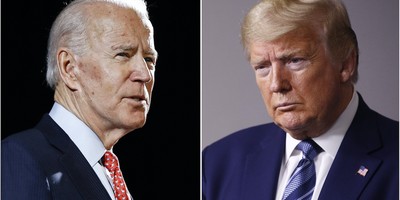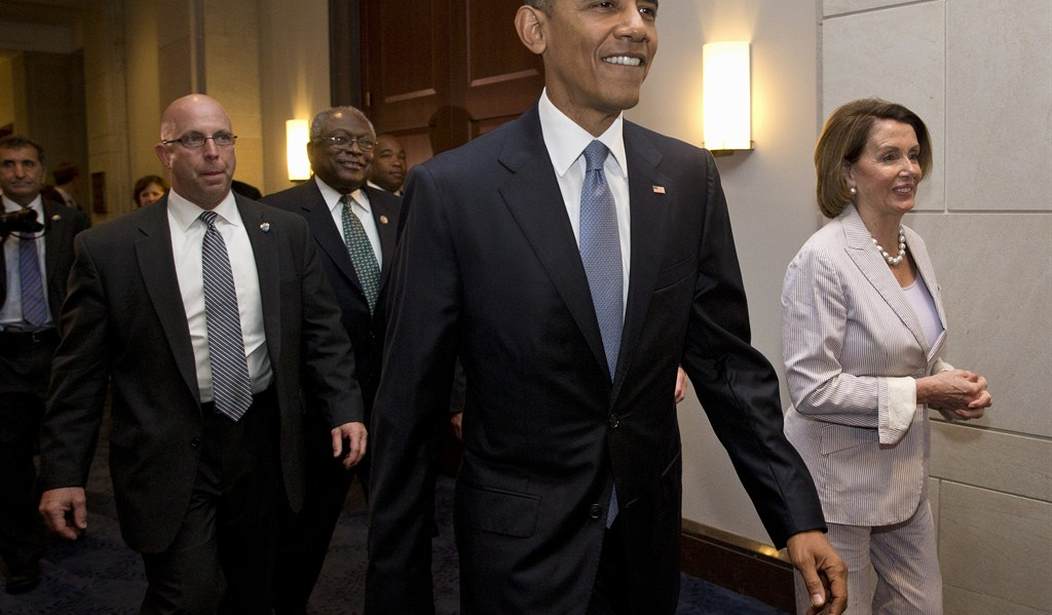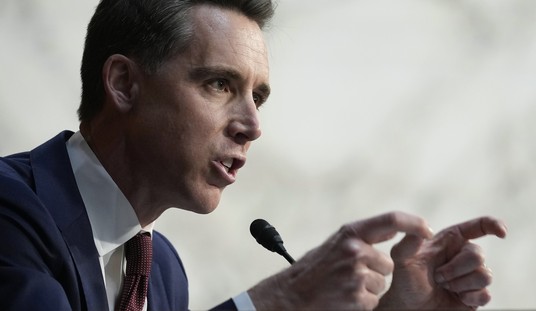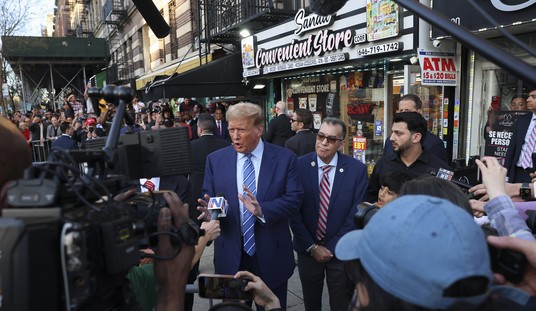Lyndon Johnson used to say that some of his colleagues were so politically inept they couldn't find their posteriors -- actually, he used a coarser word -- with both hands. Last week Barack Obama showed that, as a legislative strategist, he belongs in that category.
It's a given that he can't achieve most of his legislative goals with Republican majorities in both houses of Congress. But on trade promotion authority -- legislation to require up-or-down approval without amendments of trade agreements -- he has fumbled even though, as demonstrated on roll calls, his position is supported by a supermajority in the Senate and a majority in the House.
TPA is necessary for successful completion of Obama's Trans-Pacific Partnership and Transatlantic Trade and Investment Partnership negotiations now skillfully conducted by U.S. Trade Representative Michael Froman. Other nations won't reach agreement if Congress can pass amendments requiring further concessions.
Obama has made forthright statements in support of TPA. But he failed to rally his fellow Democrats in the House to stop them from trying to kill it.
One curious thing about trade issues is that historically, from the time of Andrew Jackson to John Kennedy, the Democrats were the free trade party. The Republicans from their beginnings to the 1960s were more protectionist.
Free trade legislation was Kennedy's No. 1 domestic priority in his first two years as president. It was passed with the support of most Democrats over the opposition of most Republicans. Disabling amendments were offered by Sen. Prescott Bush of Connecticut.
But starting in the 1970s, labor unions, hoping to prevent auto and steel job losses, have pushed for more trade protections. They continue to oppose freer trade even though half of union members today are public employees.
Recommended
When Bill Clinton sought approval of the NAFTA agreement with Mexico in 1993, the party balance had shifted. The Senate approved it 61-38, with Democrats evenly split. In the Democratic-majority House, it won 234-200, with yea votes from 102 Democrats and 132 Republicans.
Democratic support for free trade continued to slide. In 2003, when the House approved TPA 217-212, only 25 Democrats voted for it, while 27 Republicans voted against it.
It should have been obvious to Obama, months before Friday's TPA vote, that he needed to get some significant number of Democratic votes to get the measure through the House. Too many recently elected Republicans had either taken protectionist stands or didn't trust the president to carry on negotiations.
Even more important, he needed to persuade House Democratic leaders not to sabotage his effort. He needed to spend time with them, listen to their concerns and foster a team spirit. But Obama, by all accounts, has had as little time for congressional Democrats as he has had for congressional Republicans. Lyndon Johnson-style schmoozing is not his thing.
The result was apparent Friday. In May, the Senate voted 62-37 for a TPA-TAA package. TAA is Trade Adjustment Assistance, a program intended to aid workers displaced by foreign imports. Policy analysts say it's not very effective, but pro-TPA Democrats can cite it in defense against attacks from unions and primary opponents.
Friday the House took up TAA before TPA -- and voted TAA down 302-126. It was supported by 86 Republicans (many of whom dislike it) and only 38 Democrats (almost all of whom support it). House Minority Leader Nancy Pelosi led the charge against the president's policy.
House Majority Leader Kevin McCarthy didn't flinch but immediately called for a vote on TPA. It passed by a 219-211 margin, with 28 Democratic votes -- a margin eerily similar to the TPA vote 13 years ago.
But since the Senate bill tied TPA and TAA together, there is no bill for the president to sign. Senate Finance Democrat Ron Wyden, a key TPA supporter, has made it plain the Senate will not pass TPA as stand-alone legislation.
TPA is not necessarily dead. Speaker John Boehner has held open the possibility of a vote to reconsider the TAA portion of the Senate bill in the coming week. Probably some significant number of Republicans who back TPA but voted against TAA can be persuaded to switch their votes.
But that's not likely to be enough to reverse an overwhelming margin without a change of course by House Democrats. Which puts the ball squarely in Obama's court. One's ears burn as one thinks of what Lyndon Johnson would say of his predicament.

























Join the conversation as a VIP Member